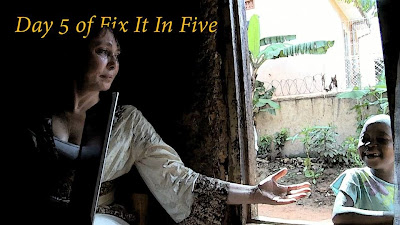I write often and widely about the power of what I call intentional storytelling as an effective way to live happily.
In a nutshell, intentional storytelling is simply telling the story of our days, moments, and lives with the intention of highlighting positivity. For example, when my husband asks, "How was your day?" I respond with the intention of telling him all the ways my day was enlightening, surprising, fun, and/or awesome. I write about the power of doing this when we tell the story of our moments to ourselves, our friends, and our social media connections. Of course, some days are more challenging than others. In this case I still tell the story of my day intentionally, but I don't try to pretend it wasn't hurtful or hard; instead I tell the story (to myself and my loved ones) with the intention of discovering and revealing truths about myself and my world rather than merely to complain, blame, or shame.
My mom travels the world helping families who are seemingly impossibly challenged find health and happiness. Her work is based in brain science and relies heavily on uncovering personal beliefs, shifting behavior, and using neurofeedback to make it all easier.
She is phenomenal! She is effective, thoughtful, and non-stop brilliant! I continue to learn from her and she helps me reset my understanding of what it is to think positive and to be happy.
So, I still talk and write about the power and simplicity of intentional storytelling but with a deeper understanding of the complexity and diversity of people and our brains. Learning that my way isn't always the right way or the best way hasn't made it less in my eyes; it's made it an addition I can confidently offer. Suddenly, I don't seek the reasons people aren't "doing it right" or "not really trying" when my tips don't work, instead I think about the so many different ways we all see "right" and we all truly try.
Hugs, smiles, and love!!
Autism Answers with Tsara Shelton (Facebook)
 |
| I encourage you to peek at my mom's international autism docu-series to learn more about making the brain happy! |